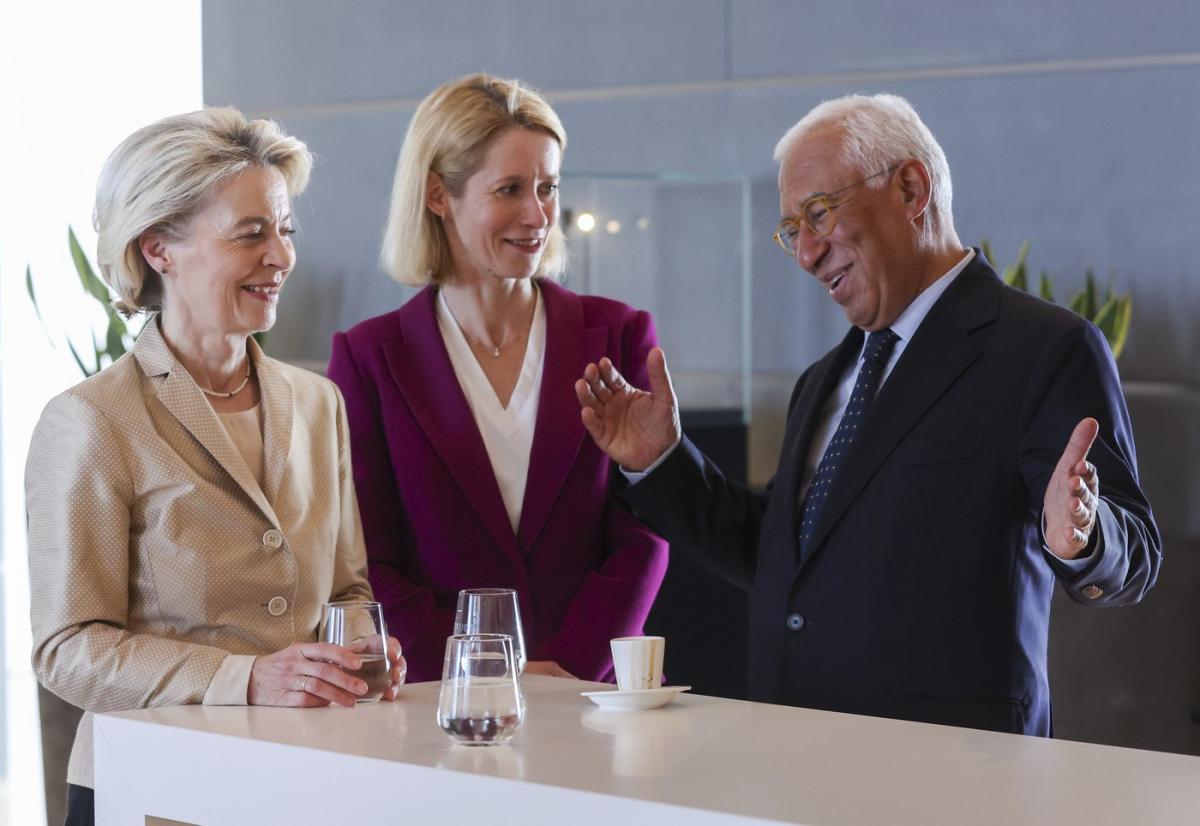BRUSSELS (AP) — The European Union’s leaders this week agreed with surprising speed on a trio of top jobs, tapping European Commission President Ursula von der Leyen for a second term, Portugal’s António Costa as European Council President, and Estonia’s Kaja Kallas as their top diplomat.
Compared to the heated scramble to appoint the EU’s top team in 2019, all three candidates looked strong heading into a crunch summit on Thursday, having garnered praise from leaders of different political and geographic backgrounds at preparatory talks in recent weeks.
While the jobs package was rejected in part or in whole by the European far right’s two most powerful politicians, Italian Prime Minister Giorgia Meloni and her Hungarian counterpart Viktor Orbán, Thursday night’s talks wrapped up with uncommon speed.
The feeling in Brussels was that with war on Europe’s doorstep in Ukraine and U.S. elections in November that could usher in the return of former President Donald Trump, there was no time to waste.
It was a far cry from five years ago, when German conservative von der Leyen’s out-of-the-blue nomination caused uproar in the European Parliament due to her lack of qualifications for the most powerful job in EU politics.
Once installed as head of the EU’s executive branch, she silenced many critics. Von der Leyen oversaw a massive drive to buy COVID-19 vaccines, launched a huge post-pandemic economic reset fund, set the EU’s most ambitious climate goals to date, and drummed up tens of billions of euros in military and financial aid for Kyiv to fend off Russia. The murky nature of the vaccine deal negotiations and her presidential style, among other things, have been weaker points.
Kallas and Costa: Profiles praised but questions remain
Kallas, who was previously in line for NATO’s top job, won over early doubters about her strident line on Russia. The 47-year-old premier’s selection immediately drew the ire of Moscow. On Friday, Kremlin spokesperson Dmitry Peskov described her as “rabidly Russophobic,” Russian news agency Interfax reported. One of Kyiv’s closest backers, Kallas was added to a Russian wanted list earlier this year.
Costa, meanwhile, put to bed concerns about a corruption investigation into his government that forced him to resign as prime minister last year. He denies wrongdoing and has not been charged over the affair. Costa, 62, is known as an astute political dealmaker in Portugal, but the scent of scandal may linger. As European Council president, his job will be to broker deals among the leaders of the 27 member states.
The ball passes to the European Parliament
While Costa is confirmed to take over from current Council President Charles Michel on Dec. 1, von der Leyen and Kallas are not over the line. They face a grilling in the newly constituted European Parliament, which will meet for the first time in mid-July, and must garner the support of a simple majority of 361 lawmakers.
The EU’s only directly elected body lurched to the right in the June 6-9 elections, though the three mainstream political families held onto a narrow working majority that allowed them to force through their picks for the top jobs.
Von der Leyen hails from the biggest group, the traditional conservative European People’s Party (EPP). Costa comes from the second largest, the center-left Socialists and Democrats. Both groups fared well in the elections, unlike Kallas’ pro-business liberal Renew. It dropped from third place to fourth, overtaken by Meloni’s right-wing nationalist European and Conservatives and Reformists (ECR).
The three centrist groups have almost 400 of the 720 members between them, which is good news for von der Leyen and Kallas. But the political families are porous and undisciplined. Some members of von der Leyen’s own EPP have already declared they won’t vote for her. Last time, the former German defense minister squeaked through with a nail-biting margin of nine votes.
Von der Leyen looks left, looks right at her own peril
To offset likely defections, von der Leyen may look left for support, above all to the significantly weakened Greens, or right, to Meloni’s ECR. But neither option is straightforward. Working with the environmentalist group may make her unpopular with her own EPP. Some members are unhappy with von der Leyen’s flagship climate policies. The center left, liberals and greens have also warned her that cooperating with the far right, whether it be the ECR or the even more extreme Identity and Democracy group, is a no-go if she wants their support.
In the run-up to the election, von der Leyen courted Meloni, whose Brothers of Italy party has neo-fascist roots, but after the strong showing by the EPP and her own German Christian Democrats she declared that the political center would serve as a “bastion against extremes from the left and from the right.”
On Tuesday, von der Leyen will meet with the political group leaders and she must convince them with the outlines of her new commission’s political program until 2029. The date for the confirmation vote is not yet confirmed.
Ella Joyner, The Associated Press

